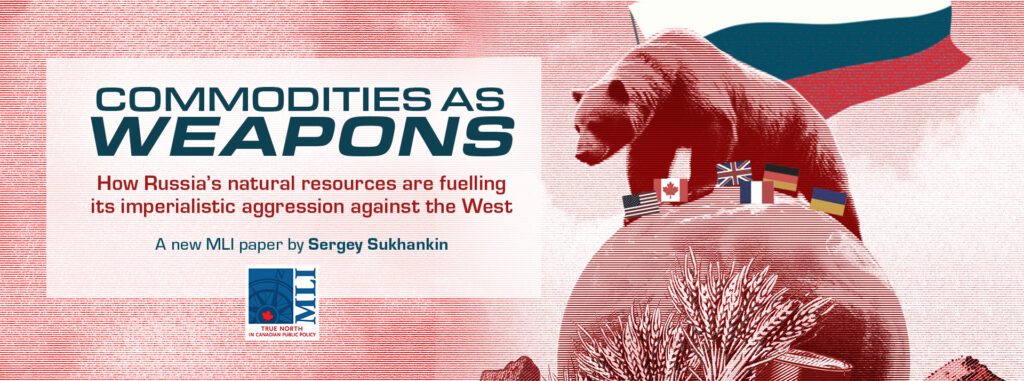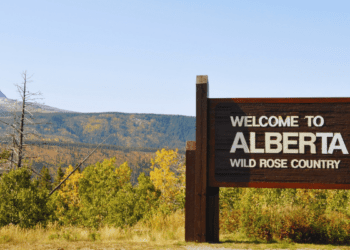This article originally appeared in the Ottawa Citizen.
By Marcus Kolga, December 12, 2024
The dedication today of the national Memorial to the Victims of Communism in Ottawa is long overdue.
It is a tangible monument to millions of Canadian families who suffered under totalitarian communist regimes. People whose cultures, languages and futures were systematically stripped away in campaigns of colonial domination orchestrated by Moscow, Beijing and their allies.
My own parents arrived here in the 1950s as children of Estonian refugees fleeing Soviet occupation. Similar stories echo across Ukrainian, Polish, Latvian, Lithuanian, Hungarian, Czech, Croatian and other communities that endured the same horrors.
Yet even now, our collective grasp of that European history remains shallow. We too often cling to an oversimplified and chauvinistic Anglo-Saxon narrative of the Second World War, casting the Soviet Union as an ally without acknowledging its joint aggression with Nazi Germany.
For those occupied by Soviet Russia, the result was a reign of mass arrests, executions and deportations to Siberian gulags. Entire minority cultures, such as the Ingrians, were wiped out. Millions were torn from their homes and families by Soviet authorities and their collaborators for no crime at all.
This reality is rarely acknowledged. Even after Germany turned on Josef Stalin, Moscow persisted in brutal crimes. In Estonia, some 30,000 men were forcibly sent to the gulag as the Red Army retreated, where one-third of them died within months. The German occupying forces picked up where the Russians left off, with murderous fervour.
By the fall of 1944, anti-Nazi and anti-Soviet resistance movements, such as Otto Tief’s in Estonia, were desperately trying to restore their nations’ independence. But as it became clear that Soviet forces would return, thousands fled. My grandparents, with my infant parents in tow, brought only what they could carry and joined the thousands of refugees who found sanctuary in Canada.
Throughout the Cold War, these refugee communities urged Canada never to recognize the Soviet occupation of their homelands. Their advocacy ultimately prevailed. In August 1991, under then-prime minister Brian Mulroney’s leadership, Canada became the first G7 nation to re-establish diplomatic ties with the newly independent Baltic states and Ukraine.
Canada’s moral clarity did not please Moscow, becoming a reality that Russian President Vladimir Putin is violently seeking to change.
The Kremlin’s propaganda machine has since worked tirelessly to distort these facts, using domestic influencers and channels such as Russia Today (RT) — recognized by western governments as a component of Russian intelligence — to sow division and hatred. They dehumanize Eastern and Central European refugees, portraying them as enemies of Canada, and falsely claim that resisting Soviet colonialism was tantamount to fascism.
Disturbingly, these efforts resonate at both extremes of Canada’s political spectrum. Both ends seek to justify Soviet terror and silence the victims. They deny entire lived experiences, branding us “enemies” of Canada for daring to remember.
This is why the Memorial to the Victims of Communism — Canada, a Land of Refuge (full name) is so vital. It reminds us that these histories form an essential strand in Canada’s national fabric, and it serves as a physical testament to this country’s steadfast commitment to human rights and democracy.
As we honour this monument, we stand in solidarity with those who endured unspeakable horrors and against those who seek to taint the truth. It stands against those who question the loyalty or trustworthiness of our communities and those who seek to dehumanize and cast us as third-tier Canadian citizens.
Our voices matter. Our stories matter. Our losses, pain and perseverance has shaped who we are as Canadians. The memorial ensures that the record of our suffering and our resilience will not be erased. It stands as a sentinel against revisionism, a quiet guardian ensuring that, in the ongoing struggle between truth and lies, the victims have a place — and a voice — in the Canadian conscience.
Marcus Kolga is a senior fellow at the Macdonald-Laurier Institute, specializing in Russian foreign policy.







